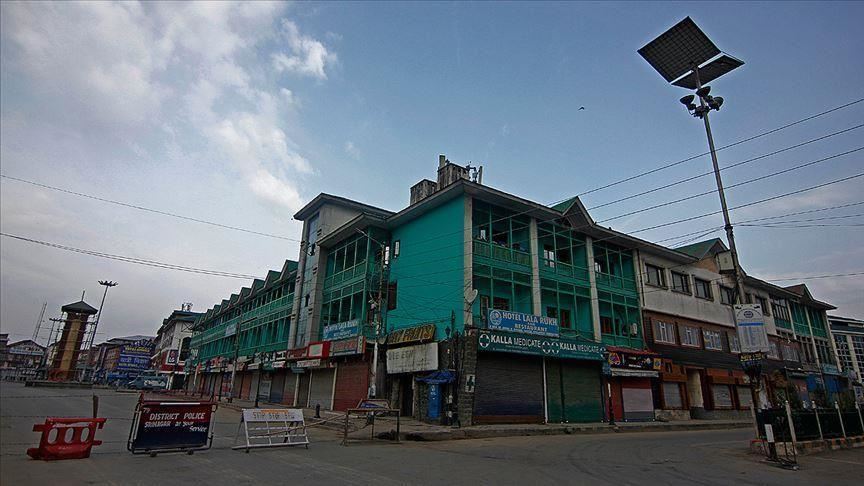Death of Kashmiri leader in jail spread worries
Relatives in Kashmir unable to meet prisoners lodged in far off jails in India for want of travel expenses, communication
 File Photo
File Photo
SRINAGAR, Jammu and Kashmir
Death of a 65-year-old Kashmiri political prisoner has brought into focus the condition of prisoners lodged in various Indian jails under preventive detention.
Ghulam Mohammad Bhat, a longtime prominent member of proscribed religiopolitical organization Jamaat-e-Islami, was one of the hundreds of people detained under a preventive detention law, the Public Safety Act (PSA), in the run-up to revoking special provisions of Indian constitution guaranteeing autonomy to the region.
Bhat, a resident of Kulangam village in Kupwara district, 70 kilometers (43.5 miles) from the capital Srinagar, presented himself before the local police post on July 17. A month later, a family came to know that he has been taken to a faraway jail in Allahabad district, Uttar Pradesh state of India.
Bhat’s son Hanif said the family could not afford to travel to meet him in the jail. Last week, two policemen came to the Bhat’s home, informing Hanif that his father’s preventive detention has been quashed, because of an illness and he should go and bring him home.
“Such an abrupt announcement unnerved me. I refused to go alone. The next day, policemen accompanied me to Lucknow, the capital of Uttar Pradesh. From where we took a taxi to Allahabad jail, where the jailor told us that my father has passed away," Haneef told Anadolu Agency.
From four bodies in the jail mortuary, Hanif identified his father, who was wearing the same clothes when he had gone to the police station in July.
The only illness the deceased ever suffered was limp in one leg caused by injuries inflicted during custodial torture by the army in 1993, Hanif said.
Relatives of other prisoners worried
Atiqa, a 55-year-old widow, is also now worried about her 25-year old son Faisal Aslam Mir lodged at a jail in Ambedkarnagar district in Uttar Pradesh, around 1,500 kilometers (932 miles) from his hometown Srinagar.
Showing Faisal’s medical prescription, Atiqa said he her son is suffering from bipolar disorder and occasional seizures, a condition she said he developed during his two-year-long preventive detention in 2016.
“I do not know if he is being treated and given medicine. I do not have money to visit him," she said.
Faisal, who repairs water purifiers, is the only breadwinner for the family.
Irfan Mehraj, a researcher at Jammu Kashmir Coalition of Civil Society, said that he found most families of the detainees reeling under anxiety because there is virtually no communication with prisoners.
“I found many families struggling to collect money in order to visit their family members in jails. Some had borrowed money. They mostly belong to working classes and there is no work since August,” Irfan said.
Mian Abdul Qayoom, president of Kashmir Bar Association, the largest lawyers' body in the region, has also been detained under the same preventive detention law.
Shabir Ahmad Bhat, an executive member of the Bar, said Qayoom's family members had met him at Agra jail in Uttar Pradesh recently.
"He is a diabetic whose kidney has been removed. His blood creatinine levels had gone high. He needs to take medicine nine times a day. And because of a firearm injury suffered many years ago he has chronic pain in a leg and back," said Shabbir.
According to Indian home ministry, out of more than 5100 Kashmiris detained since Aug. 5, only 260 prisoners are currently lodged in jails outside the state.
Until June 2018, all PSA detainees were lodged in jails within Kashmir and visiting them was easier for their families. However, the government recently amended the PSA law, which allowed shifting prisoners outside Kashmir.
“Lodging Kashmiri prisoners outside Kashmir violates Indian Supreme Court’s directions and also International law,” said Parvez Imroz, a prominent civil rights activist.
Anadolu Agency website contains only a portion of the news stories offered to subscribers in the AA News Broadcasting System (HAS), and in summarized form. Please contact us for subscription options.







